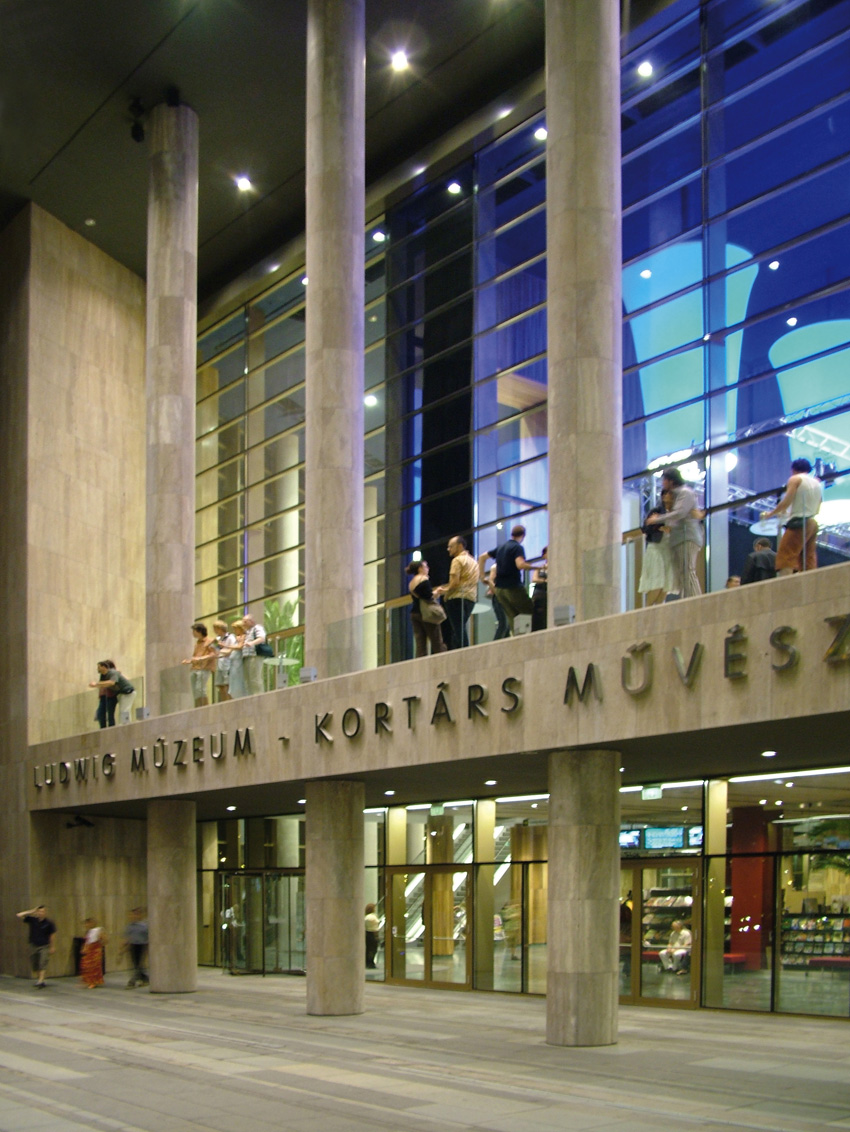The Palace of the Arts opened in 2005. It accommodates the most diverse branches of the arts, with facilities incorporating the most advanced theatre, museum, and acoustic technologies. The spectacular building occupies an area of more than 10,000 m2 at the Pest side of the Lágymányosi Bridge, adjacent to the National Theatre, the first pillar of the Millennium City Centre being built on the site.
The main objective of the architects – Zoboki, Demeter and Associates – was that the multi-functional building should present a coherent whole when viewed from the outside. The exterior presents a simple, clear aspect with large expanses of glass, and almost devoid of decorative elements.
Inside, the building is laid out into broad, clearly-arranged internal spaces. The outer surfaces are of “dead” material – concrete, glass and Süttő limestone, while inside, an enormous undulating main wall, clad mainly in walnut, creates a warm, friendly atmosphere. The building’s principal visual feature is the imposing lobby, which connects the three main sections: the Béla Bartók National Concert Hall, the Festival Theatre, and the Ludwig Museum – Museum of Contemporary Art.
The Béla Bartók National Concert Hall is the largest section of the building. With an audience capacity of 1700, the concert hall ranks among the best of the world in terms of acoustics, having been built by Artec of New York in association with Hungarian engineers. The fabulous acoustic system is coupled with a high-tech audio-visual system which can serve the needs of any visiting production at world standard. The queen of musical instruments, the great organ, was installed in spring 2006. The concert hall is home to the National Philharmonic and its Orchestra, Choir, and Music Library.
The Festival Theatre occupies the east wing of the complex. It seats an audience of 452, and its stage technology is of equal standard to that of the concert hall. The theatre hosts visiting companies and is home to the National Dance Theatre.
The Ludwig Museum – Museum of Contemporary Art, formerly accommodated in Buda Castle, takes up the whole side of the building facing the Danube. In addition to the exhibition halls, the Museum wing incorporates the Glass Hall, the events hall of the Palace of the Arts, and an expandable lecture and projection hall.
The Museum has a gross floor area of 12,000 m2. The flooring in the exhibition halls is bamboo, and illumination of art works is largely by natural light, supplemented by a system of concealed light sources. In line with international standards, the humidity is constantly monitored and controlled, and adjusted to suit each exhibition’s particular needs.





